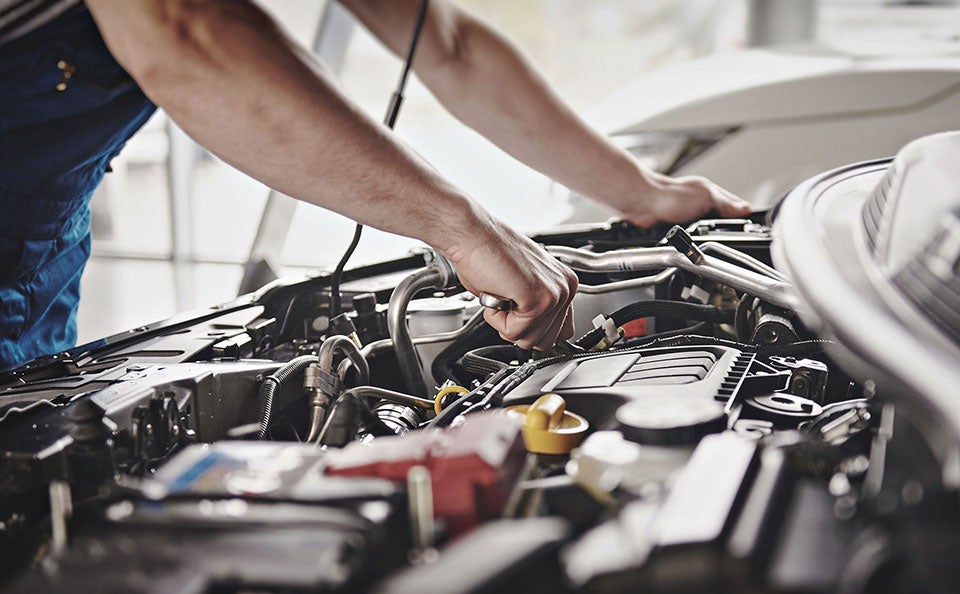
Purchasing a Honda vehicle from Neil Huffman Honda is not just an acquisition, but an investment in quality, performance, and reliability as well.
To get the most out of that investment—and to protect it—, it is important to adhere to the manufacturer-recommended maintenance schedule.
In our comprehensive guide, we explain the significance of following your Honda vehicle’s maintenance schedule. We provide you with an in-depth exploration of the critical services that ensure your vehicle’s longevity and peak performance for years to come.
The Crucial Role of Adhering to Your Honda’s Maintenance Schedule
A Honda vehicle’s maintenance schedule isn’t merely a suggestion. This is a blueprint for maintaining the integrity of your vehicle. Regular maintenance is pivotal for several key reasons:
Safety First: Regular maintenance ensures that your Honda vehicle operates at its peak, significantly reducing the chances of accidents caused by faulty components or systems.
Reliability Matters: Following the maintenance schedule minimizes the risk of unforeseen breakdowns. This in turn improves your Honda’s overall reliability, so that you can get more bang for your buck.
Prolonging Longevity: A well-maintained vehicle is more likely to achieve remarkable mileage and a longer lifespan, making the most of your investment.
Maximizing Resale Value: Good maintenance records will boosts a Honda vehicle’s resale value, attracting potential buyers and reflecting your dedication to responsible ownership.
Decoding the Manufacturer-Recommended Maintenance Schedule
Honda’s maintenance schedule is the result of meticulous research and engineering. The goal is for drivers to enjoy optimal performance and durability, which requires investing in regular maintenance for your vehicle. It primarily consists of two main components: time-based and mileage-based services.
Remember that every vehicle is different, so specific mileage and time maintenance milestones will vary based on what vehicle you have.
Regular Oil Changes: Changing your oil at specified intervals (usually every 7,500 miles) ensures proper engine lubrication, preventing premature wear and tear. Regular oil changes prevent engine sludge accumulation, enhance fuel efficiency, and extend your engine’s lifespan. The type of oil (conventional, synthetic blend, or full synthetic) should be in line with your owner’s manual’s recommendations.
Tire Rotations: Regular rotations (around 7,500 miles) will preserve traction and prolong tire life. Tire rotations ensure even tread wear, leading to better road grip and a smoother ride. Periodically monitor tire pressure and tread depth to ensure safety and performance.
Brake System Inspections: Periodic checks ensure your vehicle can stop safely and efficiently, monitoring brake pads and fluid levels. Brake inspections catch issues like worn brake pads, damaged rotors, or brake fluid leaks. Properly functioning brakes are paramount for your safety and the safety of others on the road.
Transmission Fluid Replacement: Changing transmission fluid at recommended intervals (typically every 48,000 miles) maintains smooth gear shifts and prevents transmission issues such as overheating. Consult your owner’s manual for the manufacturer’s recommended service interval.
Air Filter Renewal: Replacing the air filter (usually every 15,000 to 30,000 miles) ensures optimal fuel efficiency and engine performance. Air filters keep contaminants from entering your engine, bolstering fuel efficiency and engine performance. Regular replacement ensures consistent results.
Spark Plug Rejuvenation: Installing new spark plugs (every 30,000 miles, depending on the car) enhances fuel efficiency and prevents misfires, guaranteeing better combustion and reduced emissions. Replacement intervals vary, so consult your owner’s manual.
Coolant Flush: Flushing the cooling system (around every 60,000 miles) averts overheating, corrosion and potential engine damage, ensuring your engine stays within a safe temperature range. Regular maintenance is vital to prevent costly engine damage.
Striking the Balance Between DIY and Professional Maintenance
The maintenance of your Honda requires a delicate balance between personal involvement and professional expertise. Here’s how to navigate this balance effectively:
DIY maintenance includes:
Checking and maintaining appropriate tire pressure
Replacing air filters
Monitoring and topping up fluids (e.g., oil, coolant, windshield washer fluid)
Cleaning battery terminals.
Professional maintenance is recommended for:
Complex repairs (engine, transmission, suspension).
Brake system repairs and replacements.
Diagnostics and repairs of electrical systems.
Timing belt replacements.
The Advantages of Authorized Honda Service Centers
While third-party mechanics may seem enticing, there are compelling reasons to opt for authorized Honda service centers, such as those offered by Neil Huffman Honda:
Expertise Matters: Honda technicians receive specialized training and possess in-depth knowledge of Honda vehicles, ensuring precise diagnostics and repairs.
Genuine Parts Guarantee: Authorized service centers exclusively use genuine Honda parts, ensuring top-notch quality and compatibility.
Warranty Coverage: Maintenance and repairs at authorized service centers often come with warranty coverage, providing peace of mind.
Cutting-Edge Equipment: Authorized service centers are equipped with the latest tools and technology, ensuring accurate diagnosis and efficient repairs.
Other Recommendations from Honda
Other things to keep in mind is using unleaded gasoline that has an octane rating of at least 86. You should also make sure to regularly drive your car a distance of several miles. Once a week or more can ensure that your car gets the “exercise” it needs to function well.
Also, don’t overload your car, because exceeding the load limit can but undue pressure on pretty much every crucial component of the car, including the brakes and engine.
Lastly, driving the speed limit and avoiding poor-quality roads will get you more life from your car.
Great Maintenance Solutions from Neil Huffman Honda
Your Honda vehicle’s maintenance schedule serves as a roadmap for preserving and enhancing your vehicle’s reliability, longevity, and safety. At Neil Huffman Honda, we have the expertise needed to get the most out of your Honda vehicle!




